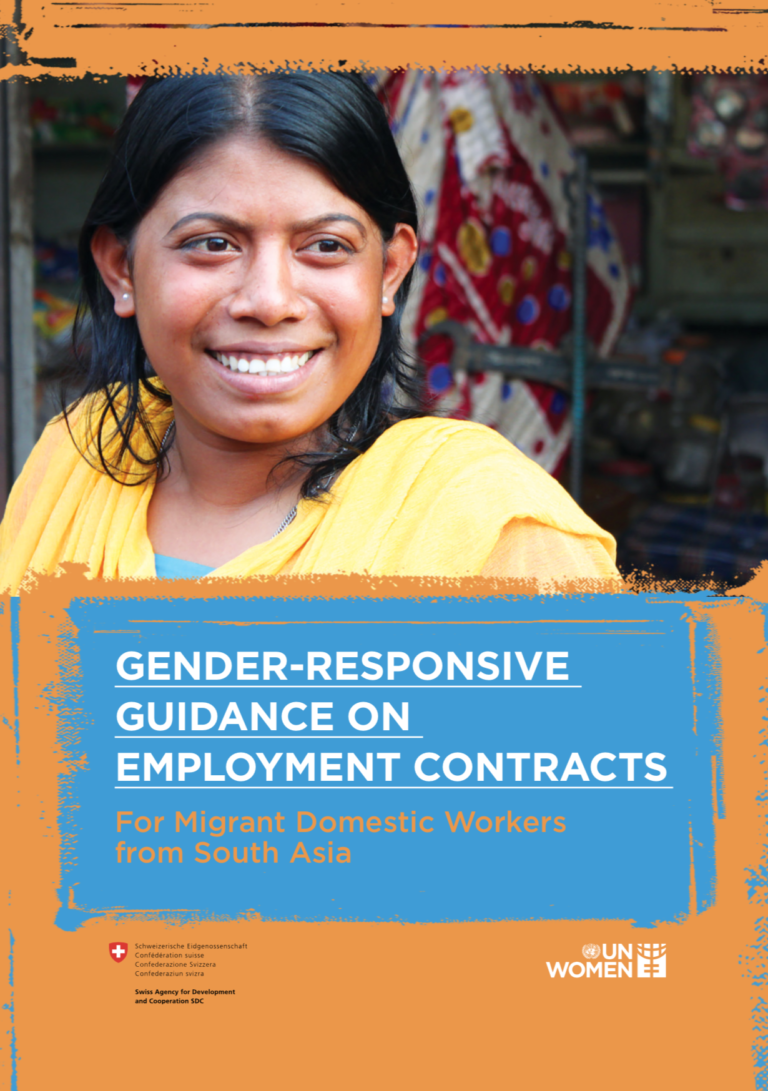Domestic workers are often partially or fully excluded from national labour laws and related protections. The lack of comprehensive legal protection for domestic workers means employment contracts play a critical role in establishing protections of their rights. Without definitive legal principles to govern the employment relationship with their employers, domestic workers report working long hours without overtime payment, sufficient weekly rest or holidays. They may experience non-payment of wages, underpayment or delayed payments, and face challenges in accessing justice when the terms of their employment are violated.
This Gender-Responsive Guidance on Employment Contracts for Migrant Domestic Workers aims to equip relevant stakeholders in countries of origin and destination with information on established international standards and best practices for employment contracts for women migrant domestic workers. It serves as a reference tool for anyone seeking to develop, negotiate or review employment contracts for migrant domestic workers. It gives example clauses guided by established international standards, along with information informed by practical examples drawn from real-world contracts. Workers, employers, recruitment agencies, and countries of origin and destination can use the guidance to make informed decisions about the content of employment contracts for migrant domestic workers, as they design, evaluate or agree to them.
The Guidance is one part of the “Empowering Women Migrant Workers from South Asia: Toolkit for Gender-responsive Employment and Recruitment” which supports gender-responsive policies and practices to protect and promote the rights of women migrant workers from South Asia.

